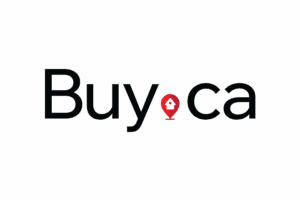Should you go with a variable rate or a fixed rate mortgage?
When announcing your recent or imminent purchase of a home you’ll inevitably be greeted with congratulations followed by a host of questions. “What area is it in?”, “How much was it” and of course in regards to your mortgage “did you go fixed or variable?”.
So how did you decide whether to go with a fixed or variable rate mortgage, and how much time did you spend researching before you made that decision? Did you know for example, there was a third option in the form of an adjustable rate mortgage? Determining whether to go with a fixed or variable rate mortgage isn’t the end-all-be-all of your home purchase, but it’s one of the most important decisions when it comes to your mortgage.
To make things a little easier, we’ve compiled a list of everything you should know when deciding whether to go with a fixed or variable rate mortgage.
Key Takeaways
- A fixed rate mortgage has a set interest rate for the entirety of the term.
- A variable rate mortgage has set monthly payments but a varying interest rate which changes your amortization length.
- If interest rates rise high enough that your monthly payment no longer covers the interest you will hit a trigger point and need to increase your monthly payments.
What are the differences between variable and fixed mortgage rates?
First let’s define both types of mortgages.
Try our mortgage search engine:
Instant, personalized results
Get real rates and apply directly
See how your bank’s rate stacks up
Variable Rate
- The variable rate floats or changes over time, depending on the Bank of Canada.
- The rate is determined using a discount off of the Prime Rate (ex. Prime minus .50%).
- Variable rate mortgages have a set monthly payment which needs to be raised if you hit your mortgage trigger rate
- If you break your variable rate mortgage, the penalty is typically lower.
- You can lock the variable rate into a fixed rate at any time, without breaking the mortgage.
Recommended reading: What is a mortgage trigger rate?
Fixed Rate
- A fixed rate mortgage will lock your rate into place for a period of time called the term, which is usually 1,2,3,4 or 5 years.
- A fixed rate mortgage provides for a stable, consistent mortgage payment for a set amount of years.
- If you break the mortgage, there is often a bigger penalty called an Interest Rate Differential Penalty.
- It is not possible to switch a fixed rate into a variable rate without breaking the mortgage.
In addition to the two classics, there’s also a third option: an adjustable rate mortgage.
Adjustable Rate
- Similar to a variable rate but your monthly payment changes automatically
- Unlike variable rate mortgages an adjustable rate mortgage does not have a trigger rate
- Adjustable rate mortgages are offered by fewer lenders than fixed or variable rate
Which type of mortgage has a higher interest rate?
As variable and adjustable rate mortgages vary with the policy interest rate, there’s no guarantee as to which type will leave you with the lowest interest paid in the long run. With a fixed mortgage you have the security of knowing exactly how much your monthly mortgage payments will be until the end of your term, whereas with a variable rate you may end up paying less in interest.
Typically when interest rates are low variable rate mortgages tend to have lower initial rates as you are paying a premium on a fixed rate mortgage for the guarantee of keeping a mortgage at a relatively low interest rate over the length of your term. While interest rates are rising, lenders expect they will be able to make more in the future from variable rate mortgage holders when interest rates rise, and so variable rates become higher than fixed rates. This is true at the time of writing as the Bank of Canada has been raising interest rates rapidly over the past year.
Recommended reading: Why are variable rates higher than fixed rates?
Ultimately whether you will end up paying more in interest with a fixed or variable rate mortgage depends on the current rates offered by lenders as well as potential rate hikes or cuts from the Bank of Canada in the future. In an environment where interest rates are dropping, a variable rate mortgage often comes out on top, whereas in an environment where rates are increasing a fixed is often a better option. Of course, no one has a crystal ball, and even lenders don’t know for certain which way rates are headed, which is why they charge a premium or a discount for a fixed rate depending on the current economic climate.
Are mortgage rates headed up or down?
The million dollar question then becomes: which way will interest rates move in the next 5 years.
First, we should look at the recent past of interest rates in Canada to see a historical overview of the situation.
We also need to take into account the current economic climate including economic output and inflation which are the two main items the Bank of Canada seeks to influence with their rate policy. In times of high inflation the Bank of Canada will raise rates to slow demand, and in times of low economic output the Bank of Canada will lower rates to encourage spending. Currently inflation remains above the Bank of Canada’s target, but has been slowing, leading to many analysts predicting that rate hikes are over for the time being.
To get a good idea of which way interest rates are headed check out our latest interest rate forecast.
Perch is your digital mortgage brokerage, offering you the opportunity to search and compare mortgages, then get pre-approved in as little as 20 minutes. Think of us as Google Flights, but for your mortgage.
When you sign-up to Perch you get instant access to our Pathfinder tool, which will show you mortgage options from dozens of lenders.
Our mortgage advisors have years of experience in the mortgage industry, and can help you choose the best mortgage for your situation, so you don’t have to worry about leaving money on the table.
 Alex
Alex





